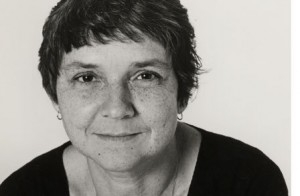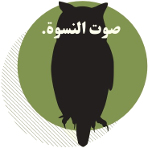
In the diary as the wind began to tear
at the tents over us I wrote:
We know now we have always been in danger
down in our separateness
and now up here together but till now
we had not touched our strength
In the diary torn from my fingers I had written
What does love mean
what does it mean “to survive”
A cable of blue fire ropes our bodies
burning together in the snow We will not live
to settle for less We have dreamed of this
all of our lives
(Adrienne Rich, “Phantasia for Elvira Shatayev” in The Dream of a Common Language, 1974)
I have this poem saved in a special file. I was thinking to print it on special notecards to give to the guests at my wedding. Of course, I am not even sure I want to have a wedding, but
still this poem embodies all that I know of love. Love is a feat of extraordinary courage. Love does not settle for less. Love accomplishes in a day what takes others a lifetime. Walking around, chanting these lines to myself, I imagine myself to be a mountain climber scaling rock faces, no matter that these faces are in front of me in my daily life and not in the remoteness of the Arctic tundra. Adrienne Rich’s vibrant, electric poetry has the power to move others, to wake them up, to slap them into awareness. Rich knew that in order to live, woman must give birth to herself in a new form, free from the constraints placed around her by society.
“Love is kindred to art, it is inexplicable. There are other factors of life which are visitors that come and go. Art is the guest that comes and remains. The others may be important, but art is inevitable.” (Rabindrath Tagore, 1940)
For Rich, the English language was a language thoroughly permeated with masculine domination and thought. Like many great artists, she first mastered that form and then proceeded to break it down. Adrienne Rich was writing for a world without the dominance of the strong over the weak, not a toothless world, a world still waiting to speak. “I have been a poet of the oppositional imagination, meaning that I don’t think my only argument is with myself. My work is for people who want to imagine and claim wider horizons and carry on about them into the night.” (Los Angeles Times, 2001)
Becoming a woman in the Cold War politics of suburban America, Rich suffered the intimate dominations of gender in the household, in the academy and in the realm of publishing. She
wrote about the things that most of us only dare to think about in the sleepless hours of the night, such as, What happens if I have a child and then regret it? Does my mother/sister love me or hate me? What if all of my work doesn’t matter? Is love possible? Can one live in vain? Can one die in vain? Is there any chance we can change the world, or are we just fooling ourselves?
These terrifying questions form the heart of Rich’s poetry and provide the jagged line breaks and difficult structure found in many of her later experimental poems. Often, a poem will be structured around one line and that line can stick to us, providing a frame– some might say a leg to walk on, something to chew and mull over as we face the same world Adrienne faced; a world of senseless violence, massive corruption, polluted water and media which distracts us and does not answer the basic question; Why?
“We shrink from touching/ our power, we shrink away, we starve ourselves/ and each other,
we’re scared shitless/ of what it could be to take and use our love/ hose it on a city, on a
world/ to wield and guide its spray, destroying/ poison, parasites, rats, viruses/ like the terrible
mothers we long and dread to be.” (“Hunger,” 1978)
Where can feminism go in this new century? Although liberation is possible for a small group of elite women, oppression and patriarchy are still expressing themselves unevenly and
with massive violence around the world. It has been a half-century of partial gains and eroding victories. “Piece by piece the democratic process has been losing ground to the accumulation of private wealth.” (“Why I Refused the National Book Award,” 1997) Rich’s politics linked race, class and gender together to examine the real workings of oppression. She mistrusted ideal
worlds and the kind of identity politics which fractures communities. We have to learn that democracy thrives on constant revision and critique but one done with the ultimate care for others.
Only this kind of careful and vicious attention; in Rich’s terms, like a wolf watching over her children, can “with no extraordinary power/ reconstitute the world.” (“Natural Resources,” 1977)
I think that Adrienne Rich would have been proud of the revolutionaries in Tahrir Square, she would be proud of the Occupy movements and she would have been proud of us, marching
for women’s rights in Lebanon, a country where the natural resources are being sold off to the highest bidder and men with guns still rule the airwaves and our hearts. She knew that solidarity is a painful and tricky process, one without beginning and end. Yet, like love, the ability to imagine what it might be like in someone else’s shoes is the most vital part of bringing a new world into being. “Until we find each other, we are alone.” (“Hunger,” 1978)
Publisher:
Section:
Category:






